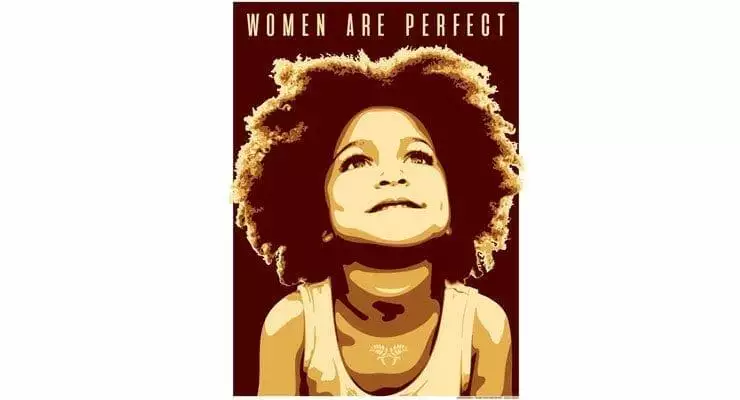March is Women’s History month, but let’s face it – women change the world every day. No matter what our “jobs” are (we usually have many), we know our real job is to grow the future. We’re good at it, too.
Special thanks to artist Jessica Sabogal whose genius created this poster to advance women’s rights.
Our high emotional intelligence and social skills make us more effective leaders than men, according to a recent study. Data from 55,000 professionals in 90 countries, at all levels of management, found that women consistently outperformed men in the 12 areas crucial for effective leadership, including emotional self-awareness, empathy, coaching & mentoring, influence, inspirational leadership, conflict management, organizational awareness, adaptability, teamwork and achievement orientation. Another study found that women-led companies perform 3 times better than the S&P 500.
So why is it that women are less likely to reach top management in business? Or equal wages with men? Or serve our nation in top political positions? We are held to double standards—the outdated myth that women “take care” and men “take charge.” Here are some of our favorite myth-busters.
Politics: Jeanette Rankin – “I may be the first woman member of Congress, but I won’t be the last.” In 1917, three years before women had the right to vote, Jeanette Rankin became the first woman to serve in the U.S. House of Representatives. Rankin was smart enough to realize that women had been overlooked in one key area of the law. Though women could not vote, there was nothing on the books that stopped them from running for Congress. So she did, and won.
Science: Marie Curie was the first woman to win 2 Nobel prizes, and the first person to win in 2 different categories: physics and chemistry. But to get there took some ingenuity. In Poland where she grew up, Curie was barred from going to the University of Warsaw because they did not admit women. But that did not deter her. Curie continued her education from a “Flying University” which secretly offered classes in changing locations, often in private homes. In turn, Curie gave lessons to poor women throughout the city.
Justice: Sandra Day O’Connor, Ruth Bader Ginsburg, Sonia Sotomayor, and Elena Kagin. It took nearly 200 years for a woman to join the ranks of the U.S. Supreme Court. To date, there have been 4 women justices, 3 of whom now sit on the current court. Still, the ratio of 4 women justices to 108 men is simply out of step with today’s world. We agree with RBG. When asked when there will be enough women on the Supreme Court, she answered, “When there are nine.”
Design & Technology: Krista Donaldson, CEO of D-Rev, a Silicon Valley not-for-profit that supplies medical devices to people living on less than $4 a day. Under Donaldson’s leadership, D-Rev has created affordable treatment for babies with jaundice, and the ReMotion prosthetic knee, worn by over 5,500 amputees. Named by Fast Company as “one of the 50 designers shaping the future,” Donaldson has also been honored as a Technology Pioneer by the World Economic Forum. “If we want to build a better world, we need to build better equality and diversity in every sector. I work in the social sector and I’m surrounded by female peers who have long leaned in, excelled in their careers – are literally changing the world and how society thinks. Where I see the biggest opportunity for growth is in redefining leadership and success.”
Education: Shannon May, Founder of Bridge International Academies. May was an anthropologist doing research in rural China, when she saw firsthand how primary education was failing impoverished families. Her response was to create Bridge International Academies, the world’s largest private provider of nursery and primary education for families living on $2 a day or less. Bridge International launched its first school in Nairobi in 2009. Since then, it has expanded across Africa, educating over 100,000 pupils. By 2025, they plan to reach 10 million children across a dozen countries. “If we keep the status quo in education, it won’t be until 2070 that all rural girls in Nigeria will complete primary school. We need to examine how we’ve created an education system that systematically excludes marginalized populations….”
During the month of March, Women’s History month, let’s bust old myths and forge ahead into the future, inspired by the examples of all women who refuse to accept the status quo. And who knows? Maybe a month of action will turn into a year, which will turn into a decade, which will turn into something we do… forever.
Love,
Princess Ivana, Magdalene Smith & Marisa Smith
Princess Ivana, Magdalene Smith, and Marisa Smith are a multi-generational family writing team. Together the two sisters and their mom have published over 100 articles and blogs on positive parenting. Their first book, A Simple Guide to Pregnancy & Baby’s First Year, was a bestseller on iTunes and received five awards. They recently launched Perfectly Awkward Tales, girl-powered fairy tale adventures where self-acceptance is the hero.





